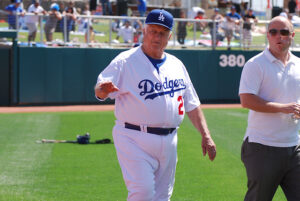By David Mullen
It appears that the world of sports is not immune to the adage “The more things change, the more they stay the same.” So far, 2021 looks strikingly similar to 2020.
We have seen teams adversely affected by COVID-19, prompting the cancelation of games by the Dallas Mavericks and a postponement of the season opener for the Dallas Stars. Many leagues continue to protect the best interests of owners. The rich are getting richer. Death is taking away legendary sports figures. Yet the games play on, with the only discernable change empty stadiums and arenas.
Franchises are trying to press on as usual, but these times are not usual. No one is blaming the Mavs or Stars for their latest setbacks. It just proves that despite privilege, this pandemic is a fan of no team.
The NFL continues to march toward Super Bowl LV in Tampa, Fla. on Sunday, Feb. 7, which the league promises will be played before 16,000 fans. The halftime performer, The Weekend, is used to playing in front of bigger crowds. The league has set the face value of the tickets from $2,700 to $5,000. At least ticketholders will have plenty of room to spread out.
While pro teams continue to lay off or furlough employees, the Chicago White Sox found a spare $56 million under the sofa cushion on January 11 to sign free agent reliever Liam Hendriks to a four-year guaranteed contract at the expense of the low budget Oakland Athletics. The more things change …
Also, on January 11, the Alabama Crimson Tide became National Champions, the culmination of a season that should never have been played. But the financial resources generated by television revenue forced university officials to go for the money. Student athletes bedamned.
The 2020 Alabama offense may be the greatest in the history of college football, but we will never truly know. They beat an Ohio State team 52-24 that lost nearly half of their regular season schedule to COVID-19. Coach Nick Saban won his seventh national title and sixth at Alabama. College football was proud. Aflac was proud. College football fans were switching the channel at halftime. The more things change …
After losing seven Hall of Fame baseball players in 2020, baseball lost another Hall of Famer on January 7 when Los Angeles Dodgers longtime coach, manager and face of the franchise Tommy Lasorda died at 93. Everyone associated with baseball seems to have a Lasorda story. Mine came at Las Vegas McCarren Airport, when the stocky Italian was cussing like a rapper at a gate agent because his first-class seat had been given to someone else. The lucky seat holder appeared to be me.

Photo courtesy of Flickr
Once the color in his face diminished from the hue of his beloved spaghetti sauce, we got a chance to talk baseball. When you grow up in the Bay Area in the 1960s and 70s, you learn to love your neighbors and hate the Dodgers.
And no one bled Dodger blue like Lasorda. Baseball lost more than a legend. They lost a man that cared about the play on the field more than today’s sabermetric pseudo fans that care only about their fantasy teams.
New England Patriots head coach Bill Belichick decided against accepting the Medal of Freedom award from President Donald J. Trump because of the attack on the Capitol building on January 6. The WNBA lauded the victory of Rev. Raphael Warnock over Sen. Kelly Loeffler, co-owner of the WNBA’s Atlanta Dream, in the Georgia senatorial runoff on January 5. Pro sports, already fully immersed in the BLM movement, is sure to remain a political football, or baseball or basketball.
The final impact of sports in 2021 remains unknown. Death is inevitable. But a growing pandemic, greed, lack of leadership from university sports officials and party partisanship needs to be addressed. Just don’t expect sports to provide change.
••••
On the heels of going 5-1 predicting the outcome of the “Super” Wild Card round of the NFL playoffs, let’s keep the momentum going for round two. When did “Super” get added to the first round of the playoffs, anyway? “Super Wild Card” is like saying “that was a Super Bowl of cereal.”
The Los Angeles Rams head to chilly Green Bay to face Aaron Rodgers and the Packers. Palm trees versus frozen palms. The Rams defense is stout but banged up. The Pack will put Los Angeles in a deep freeze.
Already beating Tampa Bay twice this season, the New Orleans Saints take on the Buccaneers in a battle of two quarterbacks (Tom Brady and Drew Brees) whose combined age is 85. They grew up playing Atari Football, when teams were depicted by Xs and Os. Put an X next to Tampa Bay.
The Baltimore Ravens travel to Buffalo to face the Bills. The high temperature will be 26. Teams will be challenged to score 26 points. The Ravens defense will remain hot and tame Buffalo. And after a week off, the defending Super Bowl champion Kansas City Chiefs host the upstart Cleveland Browns. It sets up well for a Browns upset, but it’s hard to go against the Chiefs. Take KC, but write it down in charcoal.
